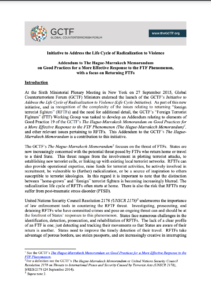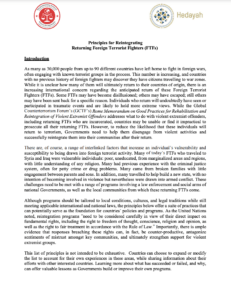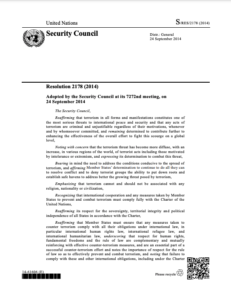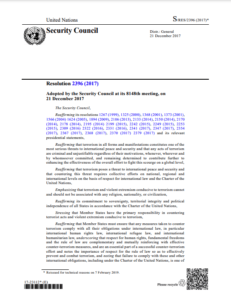RFTFs Initiative
The Returning Foreign Terrorist Fighters (RFTFs) Initiative builds inter-agency approaches to leverage a variety of disciplinary backgrounds to respond to the rehabilitation and reintegration of terrorist fighters. The Initiative supports the development of coherent national policies jointly pursued by policy-makers and practitioners at the local and national levels.
Under this Initiative, with support from the Government of the Netherlands, the IIJ spearheaded an important multi-phased bespoke programme in partnership with the Governments of Chad and Mali. The project supported the implementation of the GCTF’s Addendum to The Hague-Marrakech Memorandum on Good Practices for a More Effective Response to the FTF Phenomenon, with a focus on Returning FTFs, among other relevant GCTF good practices, tailored to the respective contexts of our partners.
Other projects under this Initiative have supported actions in relevant UN Security Council Resolutions and implementation of the GCTF’s Good Practices on Addressing the Challenge of Returning Families of Foreign Terrorist Fighters.
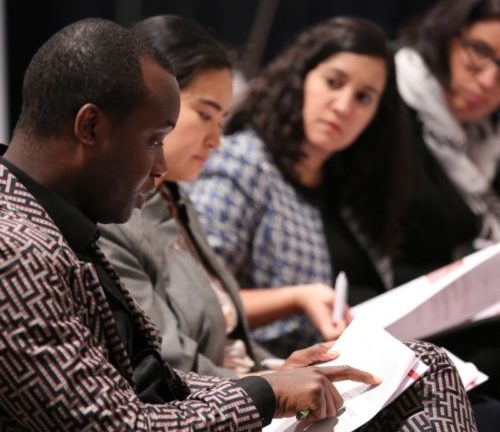
With support from the





With generous support from the Government of the Netherlands, the IIJ designed and implemented an exciting multi-phased bespoke programme in partnership with the Governments of Chad and Mali.
Through a series of tailored workshops, three each in Chad and Mali and a final joint workshop with practitioners from both countries, national practitioner representatives (judges, prosecutors, investigators, corrections officers, gendarmerie, social workers and religious leaders) have drafted recommendations for how to include rehabilitation and reintegration in their respective countries’ National CVE Policies and generated ideas for agency-specific Action Plans. Capacity-building with significant impact.
Watch our video for more on this important project.
In Action
IIJ RFTFs Initiative: Rehabilitating and Reintegrating TFs/RFTFs – Second Chad Workshop
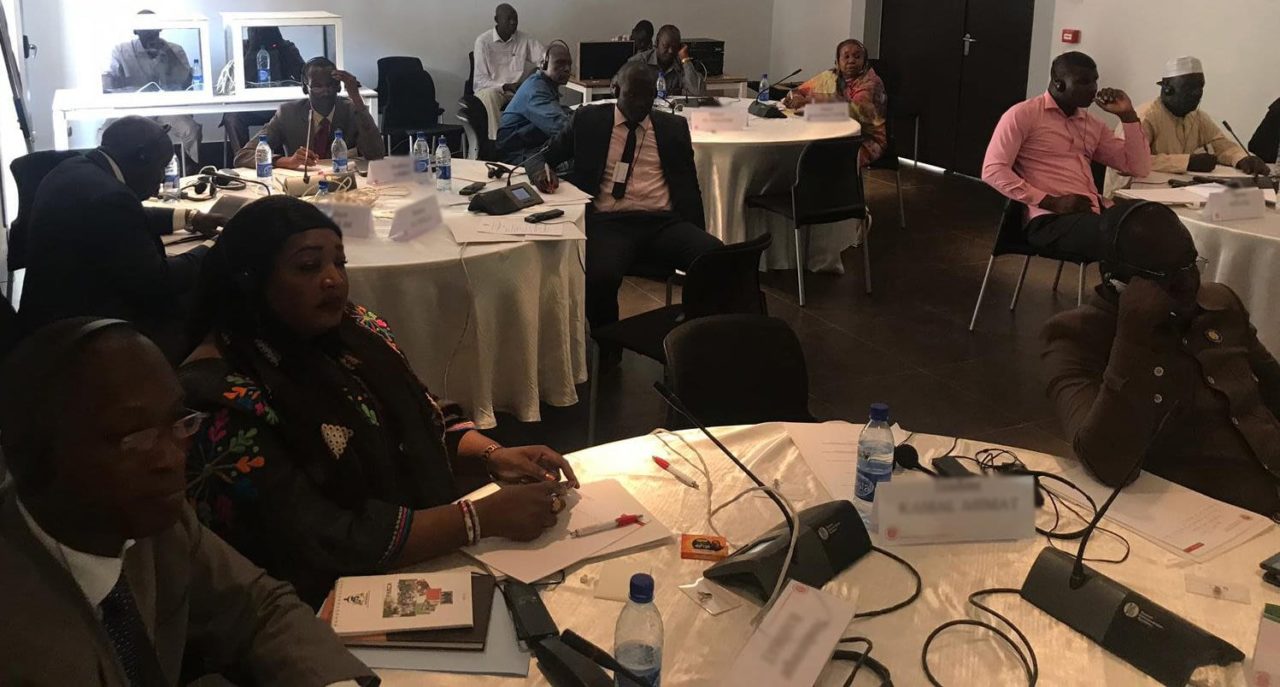
IIJ RFTFs Initiative: Workshop on Criminal Justice Responses to Returning or Repatriated FTFs and their Accompanying Family Members

IIJ RFTFs Initiative: Rehabilitating and Reintegrating TFs/RFTFs – Second Mali Workshop
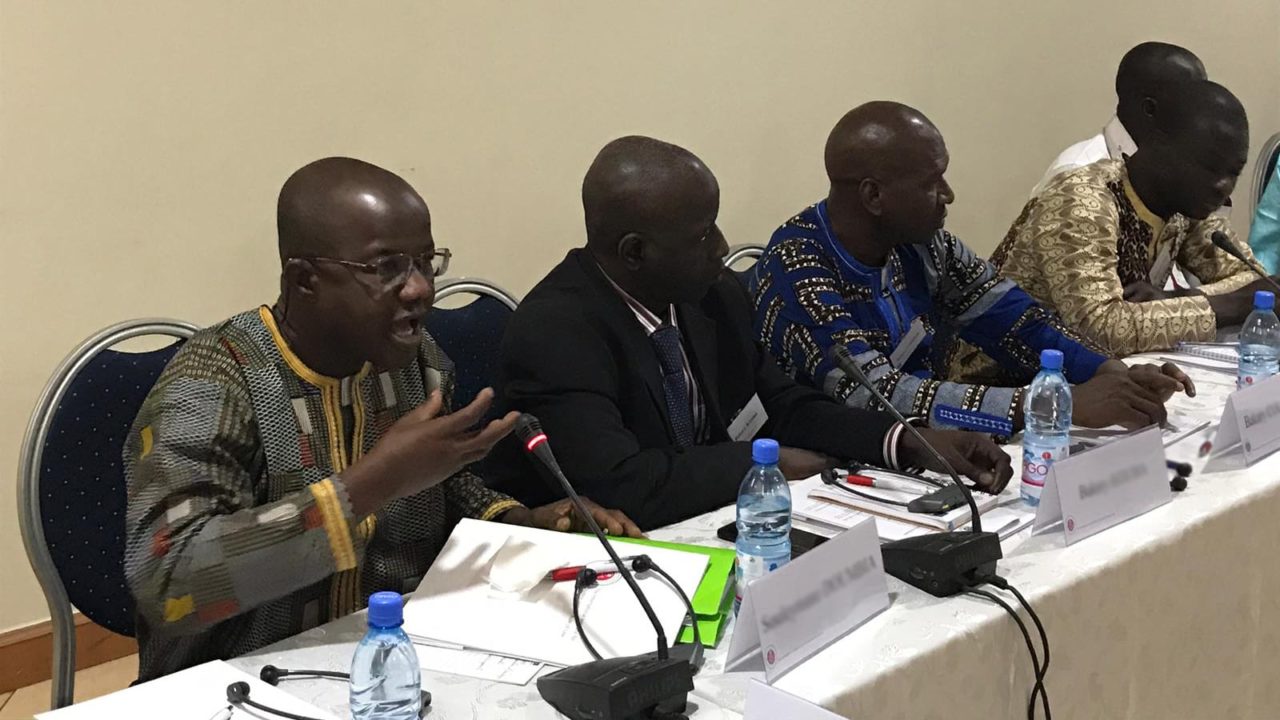
IIJ RFTFs Initiative: Rehabilitating and Reintegrating TFs/RFTFs – First Chad Workshop




